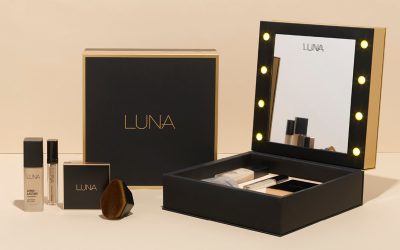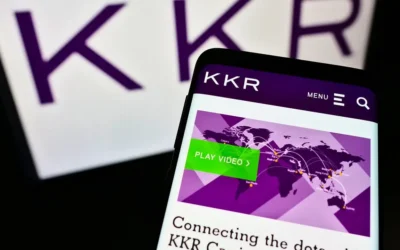Thomas Healy, the 28-year-old founder of Hyliion Holdings Corp. became a billionaire when his truck electrification company listed in New York last week.
For those, like me, who question the wisdom of a start-up going public before it’s generated meaningful revenue, Healy’s company has much to prove. But his story is reassuring in one respect.
The terms of Hyllion’s merger with Tortoise Acquisition Corp., a special purpose acquisition company (SPAC), barred Healy from cashing in when the deal closed. He can sell 10% of his shares in six months, according to the lockup agreement, but must wait two years to sell most of his stock.
The wristwatch he was wearing during our Zoom chat on Friday is the same one his parents gave him when he was 12. “I haven’t gone and splurged or anything … Honestly, I’ve been pretty busy,” he said.
Such focus and modesty is refreshing. Unfortunately, it might prove rare as the mania for SPAC deals continues. North American SPACs have raised $45 billion this year, according to Bloomberg data. The pressure to deploy this money could end up cementing the wealth and voting control of existing company owners, to the detriment of public market investors.
From the perspective of a target company, being acquired via a SPAC is attractive, particularly for an owner who wants to take some money out. Initial public offerings, usually the more common route to a market listing, have “historically been more focused on raising growth capital through the sale of primary shares than as mechanisms for shareholder monetization,” audit and consulting group EY wrote in a recent report. “Conversely, SPAC mergers have generally permitted greater cash-outs for existing shareholders at the time of the merger.”
Compared to an IPO, a SPAC listing gets done much faster and important financial matters such as valuation and shareholder lockups are negotiable. Founders might find it easier to dictate terms to a SPAC. Unlike in a regular IPO, where dozens of institutional investors pore over a company’s disclosures, there’s essentially just one party negotiating a SPAC deal: the sponsor. Provided they’re happy with the transaction, you’re good to go.
Bill Gurley, general partner at venture fund Benchmark Capital, noted recently that founders had started meeting with multiple SPACS before striking a deal — a competitive process known unflatteringly as a “SPAC-off.” To the extent that this bidding cuts the cost of capital and often egregious SPAC fees, I’m all for it. But company owners might get too good a deal.
Take Fisker Inc., another electric vehicle company (a popular target for SPACs). Founder Henrik Fisker and his chief financial officer, who’s also his wife, plan to keep 90% of the voting rights when the company merges with Spartan Energy Acquisition Corp., a SPAC affiliated with private equity giant Apollo Global Management Inc. Fisker doesn’t expect revenue until 2022.
Founders are also pretty good at persuading SPACS to let them take money out of the company. This might be okay for a mature business such as United Wholesale Mortgage, a large U.S. lender that’s being taken public by a SPAC, which doesn’t need additional capital. But it’s another thing when the business is burning cash and hasn’t proved it has a future.
Billionaire Richard Branson and a co-investor cashed out $274 million when his space tourism business, Virgin Galactic Holdings Inc., went public last year via a SPAC. A few months later Branson sold another $400 million of Virgin Galactic stock to help fund the bailout of his airline. All this before Virgin Galactic has carried its first paying customer.
In fairness, Branson had previously sunk a chunk of his fortune into developing spacecraft. The same can’t be said of Nikola Corp.’s former Executive Chairman Trevor Milton who sold $70 million of stock before the hydrogen truck company went public in June.
Nikola won’t generate meaningful revenue until next year, and that’s if everything goes according to plan. The other directors and investors didn’t want him “stressed out,” Milton explained in a July podcast interview. “I’ve been in this for five years, there’s nothing wrong with having a little bit of reward,” he added. Readers of the scathing short-seller report that forced his resignation last month might disagree. Milton denies wrongdoing.
In their haste to back the next big thing, retail investors piling into SPAC-backed companies need to make sure founder and sponsor interests align closely with their own. Hyliion seems keen not to make the same mistakes as Nikola. “I’ve told the whole company: ‘Don’t wake up in the morning and go look at the share price,” Healy told me. “We need to stay heads down and go execute.” Let’s hope they listen.
Source: Bloomberg
Can’t stop reading? Read more
K-beauty prize in play: Anchor Equity and Taekwang advance in $441m Aekyung pursuit
K-beauty prize in play: Anchor Equity and Taekwang advance in $441m Aekyung pursuit Anchor Equity...
Fortino Capital takes majority stake in Seenons to scale circular waste tech platform
Fortino Capital takes majority stake in Seenons to scale circular waste tech platform Private...
KKR clinches £4.7bn deal for Spectris, beating Advent’s bid
KKR clinches £4.7bn deal for Spectris, beating Advent’s bid KKR has secured an agreement to...




